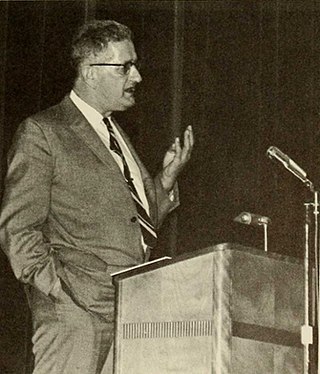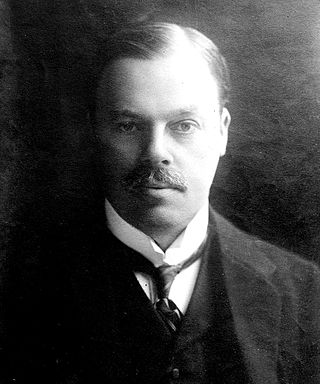Related Research Articles

Rutgers University, officially Rutgers, The State University of New Jersey, is a public land-grant research university consisting of four campuses in New Jersey. Chartered in 1766, Rutgers was originally called Queen's College, and was affiliated with the Dutch Reformed Church. It is the eighth-oldest college in the United States, the second-oldest in New Jersey after Princeton University, and one of nine U.S. colonial colleges that were chartered before the American Revolution.
The Master-General of the Ordnance (MGO) was a very senior British military position from 1415 to 2013 with some changes to the name, usually held by a serving general. The Master-General of the Ordnance was responsible for all British artillery, engineers, fortifications, military supplies, transport, field hospitals and much else, and was not subordinate to the commander-in chief of the British military. In March 2013 the holder was titled as "Director Land Capability and Transformation", but still sat on the Army Board as Master-General of the Ordnance; in September 2013 the post was eliminated.

The Naval War College is the staff college and "Home of Thought" for the United States Navy at Naval Station Newport in Newport, Rhode Island. The NWC educates and develops leaders, supports defining the future Navy and associated roles and missions, supports combat readiness, and strengthens global maritime partnerships.

Harold Keith "Johnny" Johnson was a United States Army general who served as Chief of Staff of the United States Army from 1964 to 1968. Regarded as a premier tactician, Johnson became skeptical that the level of resources given to the Vietnam War, much of which went into 'find, fix, and destroy the big main force units' operations, could deliver victory. Johnson came to believe that the Communist forces held a trump card, because they controlled whether there were engagements with U.S. forces, giving an option to simply avoid battle with U.S. forces if the situation warranted it.

The Society for Military History is a United States–based international organization of scholars who research, write, and teach military history of all time periods and places. It includes naval history, air power history, and studies of technology, ideas, and homefronts. It publishes the quarterly refereed The Journal of Military History.
In May 1948, the President of the Naval War College Admiral Raymond Spruance recommended a plan to establish a civilian professorship of maritime history at the Naval War College. Approved by Secretary of the Navy John L. Sullivan (Navy) on 29 December 1948, the post was not filled “for lack of funds” until 1951, when Thomas C. Mendenhall of Yale University was appointed to the position. In 1953, Secretary of the Navy Robert Bernard Anderson named the chair in honor of Fleet Admiral Ernest J. King, recognizing King’s great personal interest in maritime history. The Ernest J. King chair was named and first filled during the tenure of Professor Clarence H. Haring. At that point, there was only one other named academic chair in the United States for the field of maritime history, that held by the Gardiner Professor of Oceanic History and Affairs established at Harvard University in 1948. The Naval War College’s first permanent long-term civilian faculty member came in 1966 and its larger civilian faculty began in 1972. Between 1951 and 1973, the King Chair was regularly held as a one-year visiting appointment. It became a permanent faculty appointment in 1974. The position reverted to a visiting professorship in October 2016.

Theodore Ropp (1911–2000) was an American historian who served as a professor at Duke University.
Hugh Marshall Cole was an American historian and army officer, best known as the author of The Lorraine Campaign and The Ardennes: Battle of the Bulge, two volumes of the U.S. Army official history of World War II.
Martin Blumenson was an American military historian who served as a historical officer with the Third and Seventh Armies in World War II and later became a prolific author. His works included a biography of General George S. Patton.
Lewis Stone "Bob" Sorley III is an American intelligence analyst and military historian. His books about the U.S. war in Vietnam, in which he served as an officer, have been highly influential in government circles.

William Drea "Bro" Adams is an American educator and advocate for the humanities. He was the tenth Chair of the National Endowment for the Humanities from 2014 to 2017. He served as the 14th President of Bucknell University from 1995 to 2000, and as the 19th President of Colby College from 2000 to 2014.

Bennett Harvie Branscomb was an American theologian and academic administrator. He served as the fourth chancellor of Vanderbilt University, a private university in Nashville, Tennessee, from 1946 to 1963. Prior to his appointment at Vanderbilt, he was the director of the Duke University Libraries and dean of the Duke Divinity School. Additionally, he served as a professor of Christian theology at Southern Methodist University. He was the author of several books about New Testament theology.

The Harold Vyvyan Harmsworth Professorship is an endowed chair in American history at the University of Oxford, tenable for one year. The Harmsworth Professorship was established by Harold Sidney Harmsworth, 1st Viscount Rothermere (1868–1940) in memory of his son Harold Vyvyan Alfred St George, who was killed in the First World War, and whose favourite subject was history. Lord Rothermere also established a Harmsworth Professorship in imperial and naval history at Cambridge University in honour of his son Vere, who was killed in the same war. The King Edward VII Professor of English Literature at Cambridge University was endowed by Sir Harold Harmsworth in memory of King Edward VII, who died in 1910.

Mark Grimsley is an American professor of History at Ohio State University. His 1995 book, The Hard Hand of War: Union Military Policy Toward Southern Civilians 1861-1865, earned second place in the Gilder Lehrman Lincoln Prize category.

The 2015 Army Black Knights football team represented the United States Military Academy as an independent in the 2015 NCAA Division I FBS football season. The Black Knights were led by second-year head coach Jeff Monken and played their home games at Michie Stadium.
Jay Luvaas was an American military historian who was an expert on the American Civil War and the history of military theory. He was the first civilian to hold a visiting professorship of military history at West Point, and was a professor of military history at the United States Army War College in Carlisle, Pennsylvania. He was the founder of the modern military staff ride, and was a two-time recipient of the Outstanding Civilian Service Medal of the Department of the Army.
Greg Clingham is a British literary scholar and publisher. He was Professor of English (2001–18) at Bucknell University, Pennsylvania, where he held the NEH Chair in the Humanities (1996–99) and the John P. Crozer Chair of English Literature (2011–16). He was for twenty-three years, the director of Bucknell University Press (1996-2018).
Harold Clyde Bingham was an American psychologist and primatologist. He spent his early career as a psychology professor, interrupting this to join the United States Army during World War I. He joined the faculty of Yale University in 1925 and studied under the supervision of Robert Yerkes. Yerkes, a psychology professor, had an interest in primates, and Bingham also entered this field. He led a 1929-30 expedition to the Belgian Congo to study gorillas in the wild. Though hampered by the size of the expedition, Bingham managed to get close to several troops of the animals and record details of their behavior. Upon his return to the United States he joined the Civil Works Administration and the Emergency Relief Administration. Bingham later worked with the National Youth Administration and, during World War II, rejoined the US Army. After the war Bingham served as a senior psychologist with the Veterans Administration.
References
- 1 2 3 War Historian, Harold Keith Johnson Chair of Military History, United States Army War College. Accessed 6 July 2018.
- ↑ Faculty Biographies. Holly Mayer. Duquesne University. Accessed 6 July 2018.
- ↑ "Mittelstadt, Jennifer". history.rutgers.edu. Retrieved 2022-06-01.
- ↑ "Introducing: Historian Mark Sheftall to join faculty, add expertise as historian of war & society" (PDF). Army War College.
- ↑ "Prof. Krebs (History) tapped to teach at Army War College — College of Arts & Sciences". louisville.edu. Retrieved 2022-06-01.